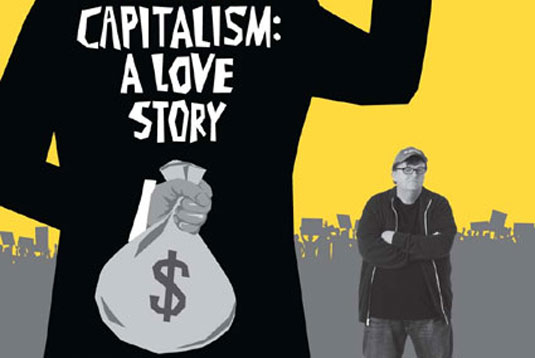There was no English writing so I have no idea why Hitler is promoting Pattaya, presumably some waxworks. But what were they thinking??????? AM I the only person who finds it offensive or is that the huge jewish chip on my shoulder!!!
This is Thailand!!

The AP reports that the waxwork museum also covered up the poster, which carried the slogan "Hitler is not dead", after receiving complaints from the Israeli and German embassies.
The billboard was one of four posters of dead people used to promote the museum, which opens next month.
Museum director Somporn Naksuetrong said: "We didn't choose Hitler with the intention of praising him, but because he is well-known. But we understand. It is sensitive for some people and countries."
Posters of Bruce Lee, Mahatma Gandhi and Michael Jackson also appear in the campaign.
The museum has not yet decided who will replace Hitler on the billboard.
====
Well, I've seen another large bill board of Hitler on the Patternakan / Srinarkarin junction at the PSTV office. Seems he's a popular guy for advertising in Thailand.
"Museum director Somporn Naksuetrong said: "We didn't choose Hitler with the intention of praising him, but because he is well-known. But we understand. It is sensitive for some people and countries."
I believe the director is being honest here. I also understand why the billboard would be offensive to some people. Good idea that it is being removed but I would not remove the wax figure. He was part of history. However, there are plenty of ways to advertise without being offensive. Plus those offended certainly would not be visiting the museum, so it additionally makes financial sense.
Interesting to note it was farang foreign interests - Israelis and Germans that made the complaint, not the Thais! An earlier comment shows the truth that most average Thais have no idea about Adolf Hitler or even about WWII. Historical education here on world wide events is incredibly poor for the average person. The education system concentrates entirely on their own history as they have written it. This is typical of a developing nation in the education system which has not yet reached a standard which encourages creative thinking or the acquisition of external knowledge. Best to keep them in the dark and just feed them the literacy development which will continue to encrust the Thai elite in their position of power while the poor remain ignorant of other world events. The museum was right to open education views, and this shows that Thailand is still a free country in many respects.

Yes clearly Hitler was an evil maniac, but if we hide from historical facts, then we do a disservice to these people. I don't find the billboard offensive, as pictures of Hitler's salute is extremely common on TV, especially "History", "National Geographic Channel" and "Discovery" which are all largely "farang" based and they are not censored, nor should they be. The museum is not glorifying this lunatic, they are, I agree helping to educate people and maybe making a little money in the process. I doubt if the average old German male here on a sex tour could care less about this billboard; think it sounds more like a knee jerk reaction from politically correct rich toffs in the German and Israeli Embassies rather than a consideration of educational ideals.

Museum apologises for Hitler billboard
A wax staff moves a Adolf Hitler wax figure at
the Louis Tussauds Waxworks room in Pattaya
Monday. A billboard to promote the museum
showing Hitler giving a Nazi salute, with the
slogan "Hitler is Not Yet Dead" was covered up
after strong criticisms.//epa
PATTAYA: -- A Thai museum has apologised for a billboard which showed Adolf Hitler giving a Nazi salute.
Museum officials in Thailand have covered a billboard depicting Adolf Hitler saluting after complaints from the German and Israeli embassies.
The advertisement, which reads in Thai, "Hitler is not dead," was set up on a main road out of Bangkok two weeks ago.
The billboard was covered up after the museum received "a lot" of complaints, director Somporn Naksuetrong said.
The series of highway advertisements featuring famous dead people promote Louis Tussaud's Waxworks in Pattaya.
"We weren't showing his image to celebrate him," Mr Naksuetrong told AFP.
"We think he is an important historical figure, but in a horrible way. We apologise for causing any offence which was not at all intended. We did not realise it would make people so angry," he added.
German Ambassador Hanns Schumacher was quoted in the Bangkok Post as labelling the advertisement "tasteless" and complained directly to the Thai foreign ministry.
The Israeli embassy protested directly to the museum, Mr Naksuetrong said.
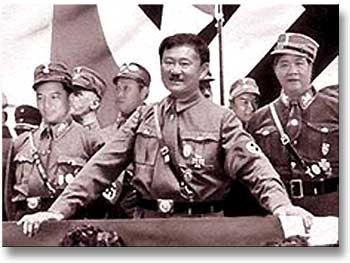
Thailand in the post-Thaksin era may be compared to the post-Hitler world. The majority of the people could afford a sigh of relief following the fall of these two great men who, during their respective periods, were real demagogues: they had used their special rhetorical expertise to persuade people into believing they were helping the underprivileged strata in society but actually they were doing this for their own benefits.
The Thais are perhaps more fortunate, in that they caught up with Thaksin more quickly than the German people of the Nazi era did, and hence they succeeded in stopping his fraudulent behaviour, including his economic imperialist designs on Cambodia, Laos, and Myanmar. Many Thais might say that Phra Sayam Deva Thiraj – the country’s Guardian Spirit – really exists, though the damage that has been done to the country by Thaksin is actually more extensive than it has ever sustained in its long history.
Thaksin Regime
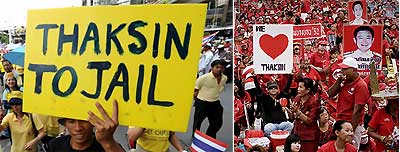
Thaksin is the most controversial figure in Thai history. He is most fervently loved by a large number of people, and is at the same time hated by at least an equally large number of people. Those who hate him carry their hatred to the extreme. Their hatred, in other words, is so strong that they do not even want to see him assassinated but would rather see him live a tormented life that he deserves for the evil deeds that he has perpetrated.
Therefore, as the nation’s most dangerous person, he is also relatively free from assassination threats. Only crazy people would attempt to assassinate him, like those allegedly involved in the planned car-bomb attack on Thaksin (General Panlop Pinmanee was the accused): the assassination attempt was aptly dubbed as a “car bong” [Bong in Thai means nuts!]. These people are not those who nurture extreme hatred for Thaksin.
However, while such incidents succeeded in boosting his fame, Thaksin, on his part, succeeded in creating divisions in the whole Thai society: deep divisions have occurred at all levels – from the national to the family levels. He anyway failed to capture his coveted star – being the greatest person on Thai soil and the ASEAN leader, before eventually catapulting himself onto the world scene as one of its leaders.
Thaksin’s Star Waned
After his government was toppled by the coup d’état on 19 September 2006, Thaksin has been formally charged or accused in a total of 17 cases involving unlawful or unconstitutional acts. Before the Supreme Court’s Criminal Division for Holders of Political Positions delivered a two-year imprisonment verdict on Thaksin, he had already fled to Britain to avoid imprisonment (end of July 2008).
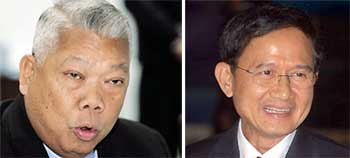
Samak Sundaravej and Somchai Wongsawat
Other cases remain at the various stages of the judicial process. The governments that were regarded as Thaksin’s proxies (those led by Samak Sundaravej and Somchai Wongsawat) could help only in so far as their executive authority was relevant. Hence, the cases that have already been submitted to the court of justice and independent organizations must duly go on, even though Thaksin is away in foreign countries.
With a new coalition government led by Abhisit Vejjajiva coming to power (January 2009), Thaksin tried to regain his power by ordering his close aides to mobilize red-shirt people who he had organized before his fall from power to serve as a spearhead. The political masses thus mobilized were instigated by propaganda through media inside as well as outside Thailand to create tension and chaos in society and cause heavy political and economic damages to the nation.
However, the Abhisit government succeeded in turning the situation that had placed it at a serious political disadvantage (8-11 April 2009) into a favourable one, which was significantly helpful for its measures to disperse the rioting mobs (12-14 April). The instigation of these red-shirt mobs to cause serious damages to the country, the use of road blockades and intimidation of Bangkok’s Din Daeng and Nang Lerng communities, as well as setting more than 20 buses on fire – all with a view to provoking the government to resort to violence – had the important effect of increasingly turning the people of Bangkok more openly against these pro-Thaksin mobs.
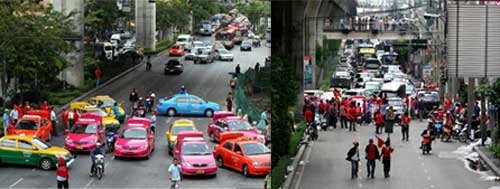

When the government declared the emergency situation by invoking the Emergency Decree in its use of troops to disperse the rioting crowds without causing any death (although 131 soldiers and civilians were injured, and two members of the Nang Lerng community were killed – with substantial evidence indicating that this was the work of those belonging to the Thaksin camp), the credibility and popularity of the government was significantly boosted, whereas the voice dictating the red-shirt groups through telephone and video links became silent.
A question arises in this connection: Will Thaksin and his supporters stop their moves to scuttle the Abhisit government? The answer is “No”.
This is because Thaksin has huge interests at stake, and he still dreams of coming back to Thailand as a powerful figure capable of claiming his 76,000 baht-worth assets back, lifting all the cases against him together with the jail sentence that he has received, and using political power to clear himself and members of his clique of all political and criminal charges and accusations.
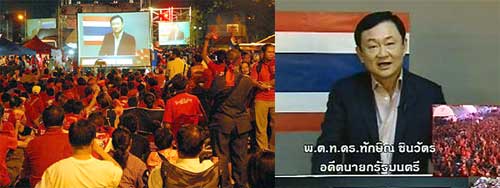
He still believes that the gigantic amounts of money he has easily acquired are sufficient to buy off the Thai people. Moreover, he still commands the loyalty of the red-shirt masses that would serve as a spearhead in pushing for his political gains and controls the MPs and senators who have received benefits from him, and who would fight for him in Parliament. Finally, he can still rely on the large grassroots support in northern and northeastern Thailand.
If Thaksin stops engineering the moves that are damaging to Thailand, and if the Abhisit government fails in its effort to solve the economic problems that have pulled the country down since the time of Thaksin’s puppet governments, when the whole world plunged into a major economic crisis, then he might have a chance of returning to power in the country. The world economic meltdown has made the task of the present government in overcoming the economic problems even more difficult. And, given the existing political instability, its chance of having enough time to accomplish this task becomes even less.
It is therefore not surprising that Thaksin and his supporters have continually created political crises and tensions in Thailand, and at the same time engaged in propaganda work in the country as well as abroad to discredit the government. They will continue these demagogic activities as long as Thaksin remains at large and has not been put in jail in accordance with the court verdict, or as long as he is still provided with freedom to engage in such activities by foreign governments that are friends of Thailand. He will never cease his search for a chance to restore his power and come back to power.
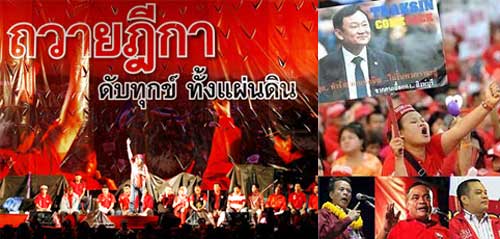
There are chances for Thaksin’s influence to decline with the passage of time and changing political situations in Thailand. These are
(1) the dwindling of the financial resources he has at his disposal to support anti-government activities by red-shirt people and pro-Thaksin MPs;
(2) the MPs under Thaksin’s control (presently the Peau Thai and other pro-Thaksin MPs) becoming in disarray with the lapse of time;
(3) the Abhisit government gaining greater popularity as a result of the policies it has undertaken; and
(4) the sharp decline in the popularity of Peau Thai Party as result of its support for violence perpetrated by the red-shirt mobs who were instigated into such actions by Thaksin and the fact that Thaksin and his supporters have acted in strong opposition to several members of the Privy Council, especially General Prem Tinnasulanond. Not only did these people threateningly surround Prem’s residence, but also many of them including Thaksin have acted in manner that is tantamount to lèse majesté.
Who Used Violence?
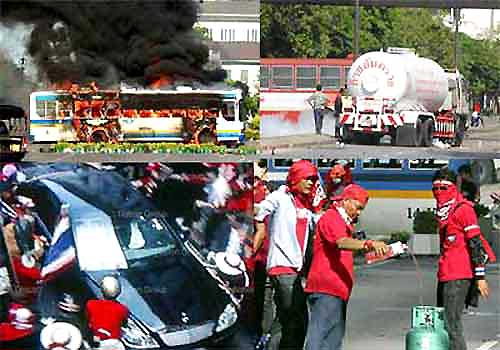
On 11-14 April 2009, press reports fully and straightforwardly covered how red-shirt mobs led by Arisman Pongruangrong sabotaged the ASEAN + Three Summits and ASEAN + Six Summits in Pattaya, as well as how the troops had dispersed red-shirt mobs at Din Daeng and the Government House without casualties. How the people of Nang Lerng community came out in opposition to the red-shirt mobs, who had seized a bus with an intention of setting it on fire near this community and who murdered two members of the community, were also extensively reported.
The media indeed covered all these other incidents as they occurred. No other governments in the world had given the media such freedom for full coverage of a serious political disturbance, but the red-shirt mob leaders, Peau Thai Party, and their patrons who manipulated a remote control from a foreign country have repeatedly accused the government of using troops to commit violence against the people.
Let us take an example of how the Thaksin-type people have distorted the facts relating to the red-shirt mobs threatening the life of Prime Minister Abhisit Vejjajiva at the Ministry of the Interior.
Here is a brief factual summary of the event. Following their success in sabotaging the Summit Meetings (11 April), the red-shirt mobs who were in their jubilant mood widened their rioting activities in Bangkok. The prime minister invited his cabinet members to a meeting at the Ministry of the Interior (12 April), because the Government House was still sealed off by the red-shirt mobs. The ministry was intended to serve as a hideout where the cabinet could work to solve the country’s problems in safety from a sudden attack by the red-shirt mobs. It was here that the government declared an emergency situation.

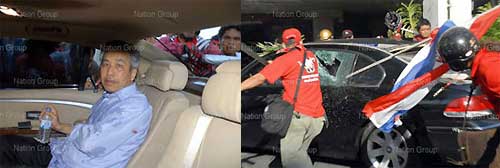
However, there was an enemy within the government circle, who tipped the red-shirts off about this hideout. A mob was thus mobilized and directed to the Ministry of Interior. Although by that time the government had declared an emergency situation in Bangkok, the police still maintained their “empty-gear” work and allowed the red-shirt mob to blood-thirstily go after Abhisit and his colleagues, who the mobs suspected might still be their cars or in certain rooms at the ministry. Abhisit’s car managed to escape from the hunting mob, but Mr. Niphon Promphan, the Prime Minister Secretary General, who was in another car, was not as fortunate as the prime minister: he was violently attacked by the red-shirt mob and later hospitalized.
The facts relating to this incident were recorded by all branches of the media that witnessed it. They should not have allowed the Thaksinians to distort these facts and resorted to political games to discredit the government. The mob leaders, particularly the supposedly “honourable” MPs who belonged to the party that had twice been formally disbanded by the verdict of the Constitutional Tribunal, raised very unlikely issues that Abhisit was not in the car that was attacked by the red-shirt mobs; and that other people posed themselves as red-shirt mobs to attack the prime minister.
Raising such ridiculous issues was simply a political game of the Thaksinians to defeat their enemy – that is, creating chaos within their enemy’s ranks by raising queer issues to attract the attention of certain shallow media that in turn took the bait by extensively reporting on them and thereby succeeding in both covering up and distracting the public from their evil deeds.
The result was that their enemy had to keep on denying the distorted facts and had no time to any good work, whereas the Thaksinians succeeded in keeping themselves in the news. Hence, when an absurd issue they had raised began to lose public attention, they would find a new one to create news for themselves.
To defeat an enemy intent upon causing trouble in their homeland with a democratic spirit is a difficult task. It seems Abhisit has been trying to do this. The media that know the country’s problems are not in a position to solve them; they tend instead to end up quarrelling among themselves about what the appropriate role of the media should be. Such a social illness in Thai society might have a chance of abating if the media would abstain from reporting the news of those who are maliciously intent upon destroying social peace and the people’s happiness. It is necessary in the long term to rid Thai society of the yoke of Thaksinism.
Author: Khien Theeravit
- Professor Emeritus, Chulalongkorn University
- Outstanding Research Scholar awarded by National Research Council
PAD, consumed democracy and self-dramatization: A comparative view from Taiwan
October 20th, 2008 by Christian Schafferer, Guest Contributor · 7 Comments
As a political sociologist by training, I find it interesting to analyze the local discourse on democratization processes in different transitional societies in East and Southeast Asia. I have lived in Taiwan for almost ten years and during that time I have frequently visited Thailand, South Korea, Mongolia and Japan for research purposes.
In political science there is the question of whether a transitional society succeeds in coping with the pitfalls of democratization or whether it regresses to authoritarianism. From this perspective, Thailand and other transitional societies in the region are worth studying and may help us to gain a better understanding of what policy makers could do to prevent the collapse of democratic institutions in other newly established democracies.
From my observations, South Korea has best overcome the difficulties of dealing with the pitfalls of democratic development among the new democracies of Asia, whereas other countries, especially the Philippines and to some worrisome extent Thailand and Taiwan, have put their political achievements at risk. Developments in the later two transitional societies have striking similarities, although the general settings of these two polities are fundamentally different.
In this brief photo essay, I would like to address those similarities in order to stimulate further discussions among members of the scientific community. I believe that more extensive comparative research is necessary and would benefit the global discourse on democratization and the consolidation thereof.
Emergence of unprecedented corruption
During the last few years, Thailand as well as Taiwan experienced the emergence of what is frequently termed “new democracy movements.” Growing dissatisfaction with the policies adopted by incumbent political leaders, the perceived government’s attempt to destroy the very foundations of the state, and the wide-spread perception of unprecedented corruption and misuse of state authority sparked off anti-government demonstrations and debates about the apparent shortcomings of democratic elections.
In Taiwan, Chen Shui-bian has been the prime target of the self-proclaimed new democracy movement since his presidential inauguration in 2000. In Thailand, the protectors of democracy targeted Thaksin Shinawatra for about the same period of time. The accusations are strikingly similar and so is the (academic) discourse.
The protectors of democracy and the right to kill opponents
At the height of the local discourse, the protectors of democracy raised two fundamental questions: First, is a comparison between those two leaders and Adolf Hitler justified? Second, under what circumstances is the execution of political leaders necessary and fully justifiable?
As to the first, intellectuals agreed that there is enough evidence to claim that both leaders deserve to be listed as the regional version of Adolf Hitler.
In Taiwan, the political wing of the new democracy movement distributed posters that likened President Chen Shui-bian with war criminal Saddam Hussein and terrorist Bin Laden during the 2004 presidential election. Although some people failed to comprehend what Bin Laden and Saddam Hussein had to do with President Chen Shu-bian, the Chinese Nationalist Party (KMT) insisted that their posters were extremely inventive and refused to stop their circulation.

Image 1: Saddam Husein poster, official campaign material, presidential election, March 2004

Image 2: Bin Laden poster, official campaign material, presidential election, March 2004
The chief campaign strategists at the KMT headquarters in Taipei considered the posters a belittlement of President Chen’s real character and decided to look for a more appropriate comparison. Soon, the people of Taiwan were taught in newspaper advertisements that President Chen Shui-bian is Taiwan’s Adolf Hitler. It did not take long and bookstores around the island were filled with publications about Hitler Chen. One of the most popular books at that time was Shuddering Future: Dismantle Taiwan’s New Dictatorship.

Image 3: Hitler Chen ad in leading newspapers, March 2004

Image 4: Cover of popular Hitler-Chen book, 2004
In Thailand, PAD protestors distributed pamphlets depicting Thaksin as the Thai version of Hitler, who forced his fellow citizens to raise their arms to the Nazi salute. More recently, artwork likening the activists’ enemy to Saddam Hussein and Adolf Hitler could be seen on the newly occupied territory of the PAD.

Image 5: Reincarnation of Adolf Hitler, pamphlet distributed during PAD rallies (Source: Srithanonchai)

Image 5a: Reincarnation of Adolf Hitler, picture posted on website of influential Thai NGO (Source: Srithanonchai)

Image 6: Reincarnation of Saddam Hussein and Adolf Hitler, PAD territory, 26 September 2008
As to the second question whether one has the right to kill a dictator like Thaksin or Chen. Intellectuals in both countries answered this question in the affirmative.
In Thailand, supporters of the new democracy movement openly called for the execution of Thaksin, whereas other influential activists also wanted to see Thaksin’s daughter become a whore infected with venereal diseases. During my last visit to the PAD occupied territory, death wishes against the opponents are still in evidence among the protectors of justice.

Image 7: Political opponent hanged, PAD territory, 26 September 2008
In Taiwan, the leader of the political wing of the new democracy movement openly declared Chen Shui-bian an outlaw who should be hunted down, whereas other intellectuals, especially one outspoken law (!) professor of the prestigious National Taiwan University, repeatedly demanded the death penalty.
Emergence of new democracy movements and markets
In 2006, Taiwan’s new democracy movement gained new momentum. President Chen’s wife was accused of corruption and his son-in-law of insider trading. Shi Ming-de, a former victim of the KMT dictatorship, called on the people of Taiwan to wear red shirts to symbolize disapproval of Chen Shui-bian. Soon, the red movement covered the streets of Taipei. Shi’s revolutionary speech lasted for a mere 5 minutes, repeatedly claiming that Chen was corrupt and should step down immediately. Despite the disappointing speech, Taipei had a new tourist attraction for the weeks to come. Buses packed with “protesters” arrived at the site of the revolution, especially on weekends. The streets of Taipei were crowded with yelling people and making thumbs-down gestures. The media spoke of a great moment in the nation’s history. Justice would come soon; the unscrupulous, ferocious, corrupt president would soon be gone. The period of the Red Movement was a time of enormous intellectual discourse. University professors dressed in red showed their unlimited support for the new leader, the protector of democracy.
Why not be part of a revolution? After all, participants could enjoy artistic performances while sharing free food and drinks. Everybody was curious to find out what would be next on the programme. Not only artists could perform there, intellectuals from all walks of life could express their opinion. Students joined the programme, too. Some of them repeated their leader’s opinion that Chen was corrupt and should step down. Others were more intellectual and rephrased songs and poems. All of them were extremely excited because they were live on TV. They were the heroes of a great revolution. The world would remember them as the true fighters for justice and democracy. It was simply in vogue to be on TV and to attack Chen Shui-bian. Even primary school kids learned their anti-Chen poems and presented them at school or on TV. T-shirts, banners, books, cups and other merchandise were sold as souvenirs. Photos were taken so that the participants could prove with pride to future generations that they defended democracy at high personal risks. It did not take long before media reports referred to the protests as the “carnival in Taipei.”
When I visited the PAD’s newly occupied territory around Government House in Bangkok, many things seemed familiar. Brand-new expensive cars parking around and inside the territory, kids voicing their concerns, abundant souvenirs, free food, and the sale of products that nobody would seriously associate with a revolution.

Image 8: Street market, PAD occupied territory, 26 September 2008

Image 9: A concerned young activist expressing his opinion, PAD territory, 26 September 2008

Image 10: Another concerned young activist expressing his opinion, PAD territory, 26 September 2008

Image 11: A revolutionary designing shopping bags for the PAD night market, PAD territory, 26 September 2008
The PAD occupied territory looks more like a market than a place where serious social and political issues are discussed. Remove the English protest signs, and the PAD occupied territory easily sells as a new tourist spot besides the floating market and other attractions in Bangkok. They offer bags, T-shirts, CDs and framed photographs featuring famous people and historic events, such as the 1976 Thammasat Massacre and the 1992 anti-government demonstrations.

Image 12: Sale of plastic hand clapping tools for the revolution, PAD night market, 26 September 2008

Image 13: Sale of food, bags, shoes and other tools for the revolution, PAD night market, 26 September 2008

Image 14: A king-loving woman selling items featuring Che Guevara, PAD night market, 26 September 2008

Image 15: A Thailand-loving woman selling boot scrapers featuring the enemies, PAD night market, 26 September 2008

Image 16: A Bob Marley activist selling souvenirs featuring the revolution, PAD night market, 26 September 2008

Image 17: Information booth exhibiting and selling documentaries of this and previous revolutions. PAD night market, 26 September 2008

Image 18: Special collections of modern Thai soap operas. PAD night market, 26 September 2008
For the younger visitors, cosmetics and other commodities, such as milk powder and instant coffee are available for sale.

Image 19: A young activist buying cosmetics for the revolution, PAD night market, 26 September 2008

Image 20: Condensed milk and instant coffee for the revolution, PAD night market, 26 September 2008
In case you get lost on the PAD occupied territory, free tour guides are available.

Image 21: PAD tour guides, PAD night market, 26 September 2008
Moreover, there are live performances featuring concerned democracy activists reading poetry and novels, and of course presentations of new PAD products. And for those who want to stay overnight free accommodation is also available.

Image 22: Concerned upper-class citizens attending the PAD Friday night show, PAD night market, 26 September 2008

Image 23: One of the keynote speakers at the PAD Friday night show, PAD night market, 26 September 2008

Image 24: The same keynote speaker signing autographs and chatting with fans, PAD night market, 26 September 2008

Image 25: New product presentation at the at the PAD Friday night show, PAD night market, 26 September 2008

Image 26: Free accommodation available, PAD occupied territory, 28 September 2008

Image 27: WC facilities, PAD occupied territory, 28 September 2008
The new tourist spot is already famous, visitors travel long distances to get hard evidence of their active participation in the revolution.

Image 28: Young part-time activists taking pictures together with a PAD veteran, PAD occupied territory, 26 September 2008

Image 29: Tourists taking pictures, PAD occupied territory, 28 September 2008
While walking through the PAD territory, I could not but notice that most participants were middle-aged women. When I told one of the PAD supporters about my observation, he noted that PAD defends women’s rights and seeks gender equality. Asked whether this equality was also represented in the composition of PAD’s leadership, the supporter started to talk about the injustices Thaksin and his followers had imposed upon the poor people of the country.
On the PAD territory, I also saw a branch office of the Young PAD. One of the students talked to me in English and I asked him why he had joined the movement. He responded by saying that in Thailand few people were rich and the rich controlled the political and social lives of the masses. At the same time, one of his colleagues arrived in a brand new car.

Image 30: Youth division of the revolutionaries, PAD occupied territory, 26 September 2008

Image 31: Car of a Young-PAD functionary parking outside the Young PAD branch office on PAD occupied territory, 26 September 2008
In Taiwan, I have hardly heard that a student joined the movement out of his concern over the poor. They would usually tell me that their borough chief or some other politician offered them NT$ 2,000 (US$ 60) for taking a weekend trip to the carnival in Taipei.
What’s the difference?
Street protests and the call for justice are nothing new. They have occurred numerous times in Thailand as well as in Taiwan. So, why should the so-called new democracy movements be classified as mob rule and be considered a threat to the future development of democratic institutions in the region?
In the past, the opposition took to the streets, sometimes with violence, just like the participants of the new democracy movements. In this respect both generations of democracy activists share similarities. But that is the only thing they have in common. Everything else was fundamentally different to what the situation is in today’s Thailand or Taiwan.
During the martial law period in Taiwan, there were great injustices. Political opponents were imprisoned, tortured and many disappeared. The media was strictly controlled and publications critical about the regime were banned. There was no opportunity for the opposition to address their issues of concern publicly without facing dire consequences. The political system was de-facto authoritarian with gross human rights violations. The concerns of the democracy activists were more than justified. I do not see the existence of such a situation in today’s Thailand or Taiwan, though. They do not have to fear about their personal safety, when they speak out against their opponents. In addition, they do have legal means of communication. When I started to do comparative research on Taiwan’s democracy movements there was one critical difference I noticed. Previous movements not only addressed injustices but they also tried to communicate with ordinary people and what is even more important they looked for ways to help the people overcome their social difficulties and to defend their rights. At the end of the 1970s, for example, democracy activists set up legal counseling offices around the island, where workers and others affected by the government’s policies could get free legal advice and other practical help. University professors were invited to give lectures on what is wrong with the current policies and what could be done to overcome these difficulties. There was a meaningful intellectual discourse, which brought about many powerful social movements in the late 1980s. These movements in turn made incumbent governments aware of the need for new legislation improving the rights of the people.
The new democracy movements, on the other hand, have abundant ways to deal with their concerns, but they do not make use of them. Today’s activists voice their concern about the widespread corruption of Thaksin, Chen Shui-bian and their followers. They believe that once they have toppled those “criminals,” their country will be freed from corruption and injustices. But, are they really concerned about corruption? What steps have they taken to fight corruption in their countries? How many seminars on corruption prevention has the intellectual wing of the new movements organized? How many local initiatives have there been? How many legislative drafts has the political wing of the movements submitted to parliament for discussion?
Instead of seeking feasible and meaningful solutions, they are opposed to any conversation with their critics. They have opted for isolation and unnecessary violence. Critics are simply condemned and vowed to be replaced. The creation of the Ratchadumnoen University serves as an example here. Academics critical of their approach were declared incompetent. The new democracy activists ascertain that only those who joined their protests at Ratchadumnoen Nok Avenue are qualified to speak about democracy, Thailand and the people.

Image 32: PhD diploma signed by PAD leaders and authorizing people to speak about democracy, available for 100 Baht at PAD night market, 26 September 2008
The new democracy movements have failed to practice democracy; they have just consumed it. And that is why the movements constitute a threat to the future development of democracy and humanity in the region. In the early 1990s, the global academic discourse focused on the question of whether democracy is a universal value or whether there should be regional interpretations of what democracy is and what not.
The new democracy movements in Thailand and Taiwan are likely to be used in the near future to back up the so-called Asian values theory, which will seriously endanger human development in the region.




